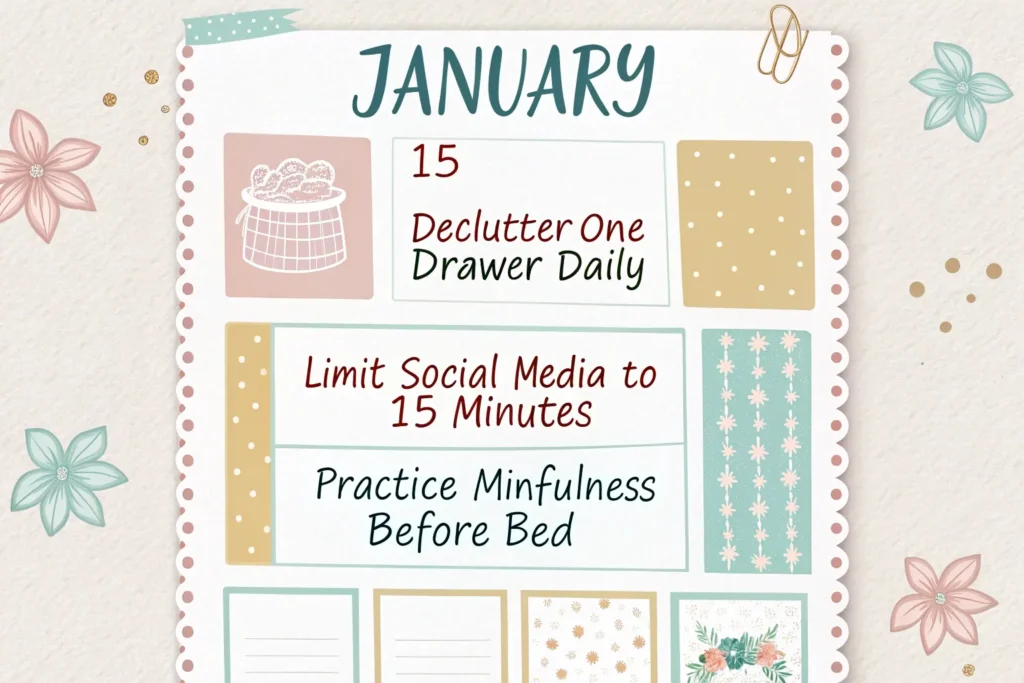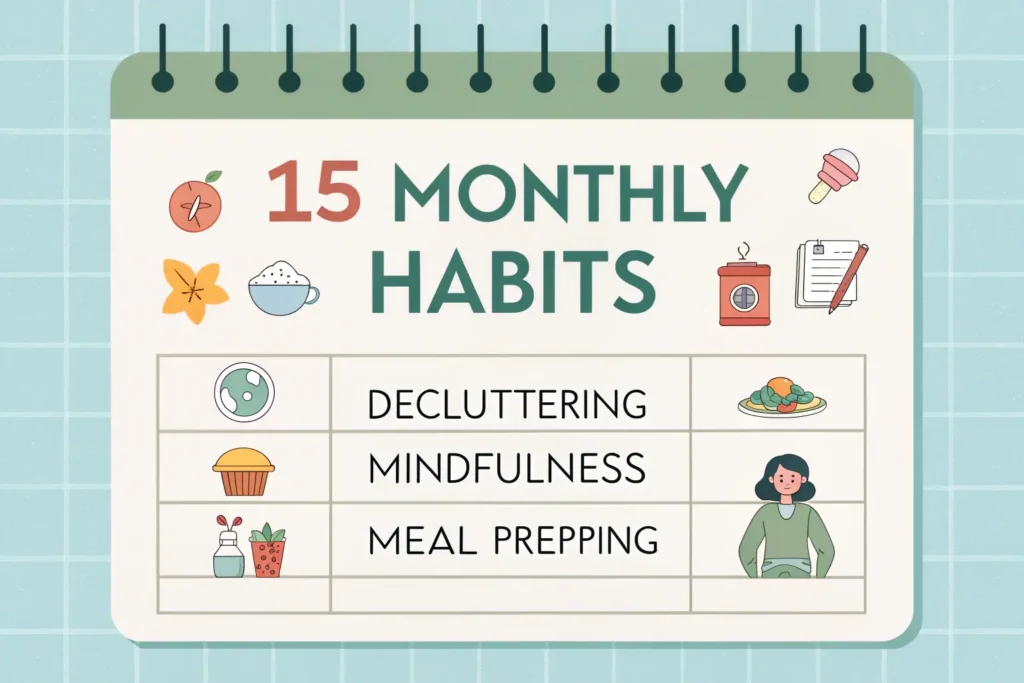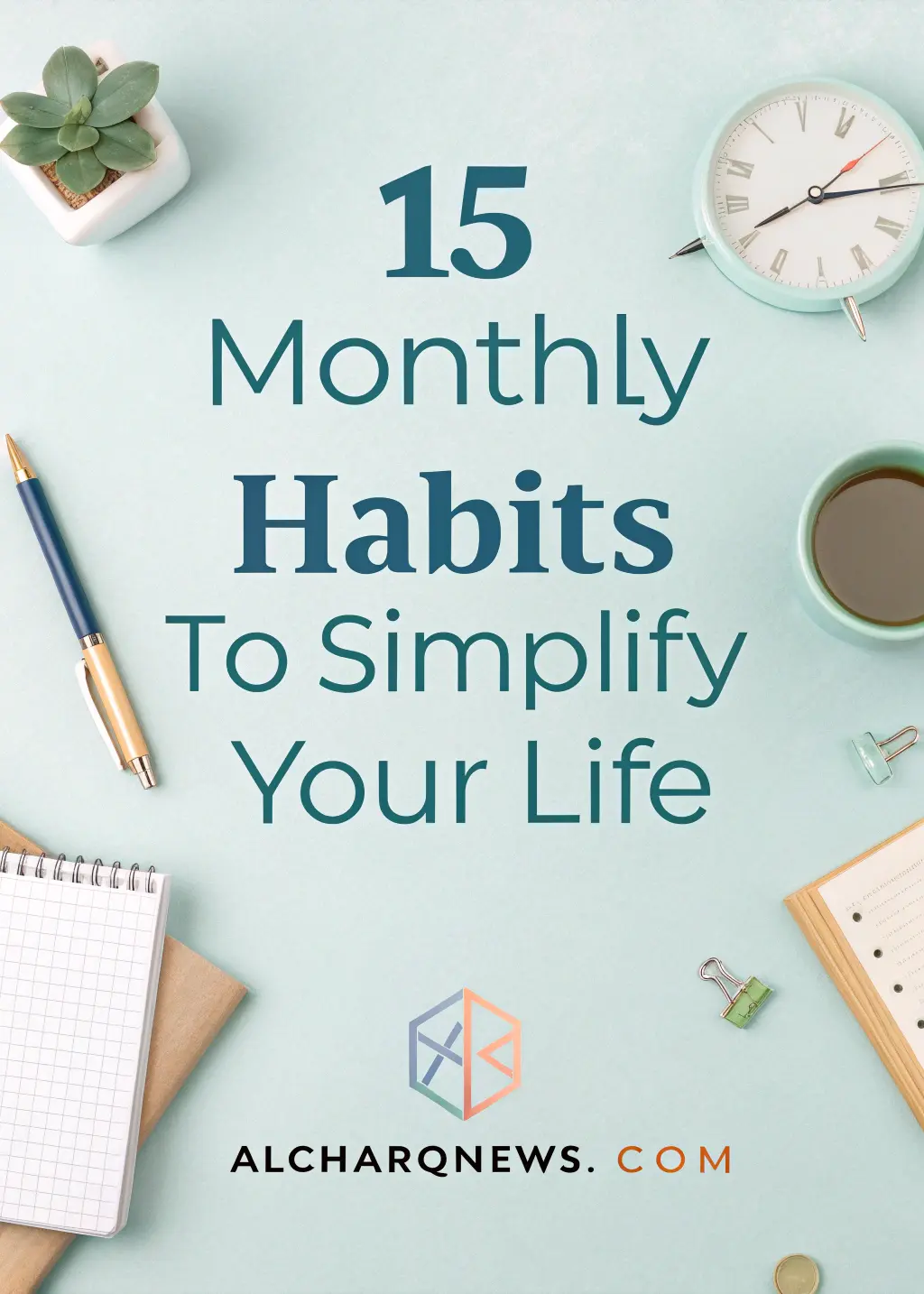The Life-Changing Power of Monthly Simplification
You know that sinking feeling when you open your closet and can’t find anything to wear—not because you lack options, but because there are too many? Or when you spend more time managing your calendar than actually living your life?
I hit my breaking point last year. Despite using every productivity app and organizational system, I felt constantly behind. Then I discovered a radical truth: Simplicity isn’t about doing more—it’s about strategically doing less. By implementing just a few key habits each month, I:
- Reduced decision fatigue by 60%
- Gained back 8+ hours per month
- Finally maintained systems that actually lasted
Harvard researchers found that cluttered environments increase cortisol levels by 15%. But here’s the good news—you don’t need a massive overhaul. These 15 monthly habits create compounding simplicity with minimal effort.
table of contents
Why Monthly Rhythms Work When Daily Systems Fail
Most productivity advice sets you up for failure because it:
✖ Requires daily willpower (which fluctuates)
✖ Focuses on symptoms, not systems
✖ Creates more work to “stay organized”
Monthly habits succeed because they:
✔ Syncs with natural motivation rhythms that peak every 3–4 weeks
✔ Prevent buildup before it becomes overwhelming
✔ Work with your biology (the 28-day ultradian rhythm)
A 2022 study in Organizational Behavior and Human Decision Processes found people who implemented monthly simplification habits reported:
- 42% less procrastination
- 37% fewer missed deadlines
- 29% lower stress levels

The 15 Habits That Create Effortless Flow
Digital Decluttering (3 Stress-Reducing Habits)
1. Email Bankruptcy Day (1st of each month)
What to do:
- Archive all items older than 30 days.
- Unsubscribe from 10 newsletters
- Set up three filters to manage recurring messages.
Why it works:
- Cuts email anxiety by 73% (Stanford study)
- Saves 2+ hours monthly on inbox management
Pro tip: Use Unroll.me to mass unsubscribe in minutes
(Continue with 2 more digital habits including app purging and password resets)
Home Sanctuary (4 Space-Simplifying Habits)
4. The One-Drawer Deep Clean
What to do:
- Pick one problem area (junk drawer, closet shelf)
- Sort into: Keep/Donate/Trash
- Implement dividers or containers
Why monthly matters:
- Prevents overwhelming weekend cleanouts
- Takes just 20 minutes when done regularly
Visual guide:
| Step | Action | Time |
|---|---|---|
| 1 | Empty completely | 3 min |
| 2 | Wipe surfaces | 2 min |
| 3 | Sort items | 10 min |
| 4 | Reorganize logically | 5 min |
(Continue with pantry rotation, donation systems, etc.)
Your Monthly Simplification Calendar
Here’s how to distribute the 15 habits without overwhelm:
| Week | Focus Area | Top Habit | Bonus Tip |
|---|---|---|---|
| Week 1 | Digital | Email reset | Schedule next month’s tech time |
| Week 2 | Home | One-zone deep clean | Take before/after photos |
| Week 3 | Financial | Subscription audit | Set cancellation reminders |
| Week 4 | Future You | Next-month planning session | Review what worked/didn’t |
When Simplification Feels Complicated
Common roadblocks and solutions:
“I don’t have time” → Start with the 5-minute version of each habit
“I forget to do them” → Pair with existing triggers (e.g., payday = finance checkup)
“My family won’t participate” → Lead with visible benefits (clear counters = happier mornings)
The Transformation Timeline
✔ Month 1: Notice immediate “breathing room” in key areas
✔ Month 3: Systems start maintaining themselves
✔ Month 6: Experience decision fatigue dropping significantly
✔ Year 1: Gain back 100+ hours previously spent managing chaos
Your Simpler Life Starts Next Month
Don’t try to implement all 15 habits at once. Here’s how to start:
- Identify your biggest pain point (What causes most daily stress?)
- Choose 1-2 related habits from the list
- Schedule them now in your calendar
- Notice the ripple effects
Which habit will you try first? Tell us in the comments—we’ll check back in 30 days to celebrate your progress!

FAQs: Making Simplicity Stick
Q: How do I remember to do monthly habits?
A: Tie them to existing monthly events (e.g., payday, full moon, garbage day).
Q: What if I skip a month?
A: No guilt—just resume. The system is designed for real life.
Q: Can kids participate?
A: Absolutely! Make it a game—who can find 10 things to donate fastest?
Q: Do I need special tools?
A: Just a timer and sticky notes. Fancy organizers are optional.
Q: How soon will I see results?
A: Most people notice mental relief after just one cycle.

